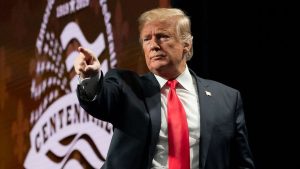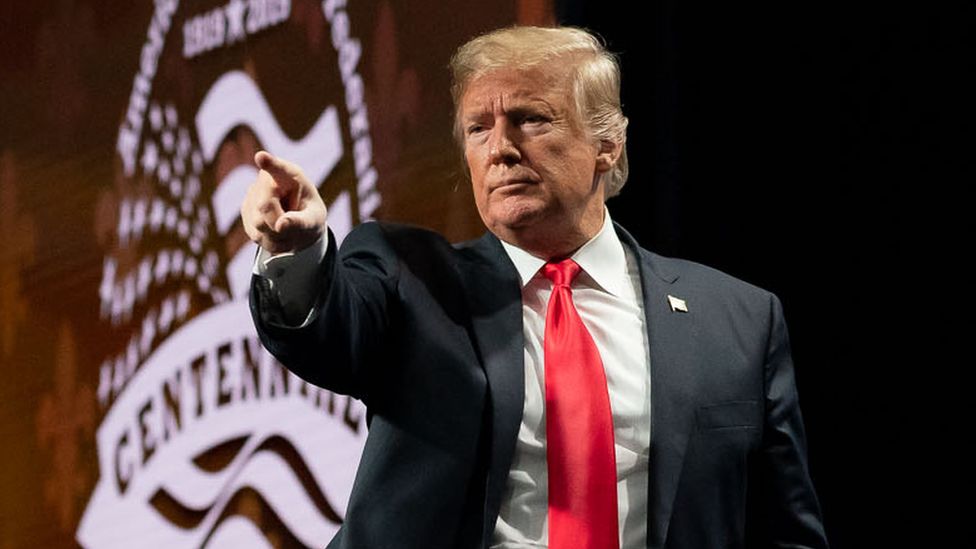
A report in the Washington Post newspaper says that the FBI was looking for “classified documents relating to nuclear weapons” at Donald Trump’s Florida home when agents raided Mar-a-Lago on Monday, citing people familiar with the investigation.
The former American president Donald Trump has called for the “immediate” release of the federal warrant the FBI used to search his estate, hours after the Justice Department had asked a court to unseal the warrant, with Attorney General Merrick Garland citing the “substantial public interest in this matter.”
In messages posted on his Truth Social platform, Trump wrote, “Not only will I not oppose the release of documents … I am going a step further by ENCOURAGING the immediate release of those documents.” He continued to assail the FBI search of Mar-a-Lago as “unAmerican, unwarranted and unnecessary.”
“Release the documents now!” he wrote.
The Justice Department’s request to unseal the search warrant paperwork is striking because it traditionally remains sealed during a pending investigation.
However, the department appeared to recognize that its silence since the search had created a vacuum for bitter verbal attacks by Trump and his allies and that the public was entitled to the FBI’s side about what prompted Monday’s action at the former president’s home.
“The public’s clear and powerful interest in understanding what occurred under these circumstances weighs heavily in favour of unsealing,” said a motion filed in federal court in Florida on Thursday.
Should the warrant be released – the request is now with the judge – it could disclose unflattering information about the former president and about FBI scrutiny of his handling of sensitive government documents right as he prepares for another run for the White House.
During his successful 2016 campaign, he pointed frequently to an FBI investigation into his Democratic opponent, Hillary Clinton, over whether she mishandled classified information.
It’s unclear at this point how much information would be included in the documents, if made public, or if they would encompass an FBI affidavit that would presumably lay out a detailed factual basis for the search.
The department specifically requested the unsealing of the warrant as well as a property receipt listing the items that were seized, along with two unspecified attachments.
To obtain a search warrant, federal authorities must prove to a judge that probable cause exists to believe that a crime was committed.
Attorney General Merrick Garland said he approved the warrant, a decision he said the department did not take lightly given that standard practice where possible is to select less intrusive tactics than a search of one’s home.
In this case, according to a person familiar with the matter, there was substantial engagement with Trump and his representatives before the search warrant, including a subpoena for records and a visit to Mar-a-Lago a couple of months ago by FBI and Justice Department officials to assess how the documents were stored. The person was not authorized to discuss the matter by name and spoke on condition of anonymity.
Neither Trump nor the FBI has said anything about what documents the FBI might have recovered, or what precisely agents were looking for. But the former president complained again on Thursday about the search.
Trump, who for years has lambasted the FBI and sought to sow distrust among his supporters in its decisions, said the warrant was served and the search conducted despite his cooperation with the Justice Department over the search.
In a post to his Truth Social platform, Trump said that his “attorneys and representatives were cooperating fully” before the search and that government officials “could have had whatever they wanted, whenever they wanted, if we had it.”
The Justice Department has until Friday afternoon to alert the judge about whether Trump will object to the release. — Euronews









Leave a Reply